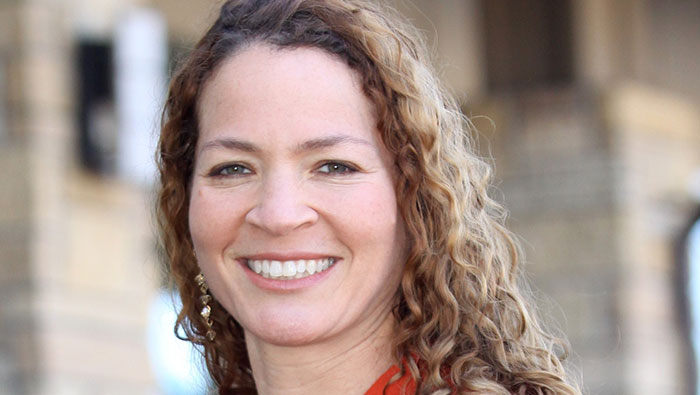
Tamu Green, Ph.D. ’08, is trying to save the next generation from the perils of smoking. A new ordinance adopted in a Massachusetts town is based on an idea she spearheaded for years.
The ordinance, which went into effect in Brookline in September, bans anyone born after Jan. 1, 2000, from ever buying tobacco or vaping products. According to a recent Time magazine article, New Zealand intends to pass a similar policy in 2022.
Green’s interest in prevention initiatives actually goes back to her high school years, when a friend was killed in a drunk driving accident.
“I must have been 15 at the time, and it was really impactful on me,” she said.
She responded by getting involved in youth groups aimed at educating her peers about drunk driving. Friday Night Live and Students Against Drunk Driving inspired her to volunteer at a school for children in addiction treatment programs when she was a college student at UC Santa Cruz.
“I thought I was going on to become a school teacher — that was my career ambition,” Green said. “But after I graduated, I worked in the Bay Area at the Youth Leadership Institute and that was really focused on substance abuse prevention.”
She said the experience led her to learn more about the public health implications of substance abuse — and not just alcohol. She became a substance abuse specialist and applied for a fellowship program with the Robert Wood Johnson Foundation, which ultimately led her to UC Davis.
It also gave her a mentor, who introduced her to advocates at the national level of alcohol, tobacco and drug prevention. In 2001, she met C. Everett Koop, a former U.S. surgeon general and campaigner against tobacco.
“I asked him why we can’t just take cigarettes off the market, and he said that people who are addicted to cigarettes would riot in the streets,” she said. “So I started thinking about how we can attend to that reality and protect future generations.”
With her now ex-husband, Paul Nolfo, she came up with the idea to grandfather in current smokers.
“That way, you could not deal with the blowback from those who are addicted, but we would save the next generation from this fate.”
The idea met a lot of resistance along the way, but she said it’s gaining momentum. Green has continued to work in health and health equity, and she is the founder and CEO of the Equity and Wellness Institute, a consulting firm for strategic planning, policy development, community wellness and racial equity in Sacramento.
She said her vision for the future would be that many towns adopt similar ordinances as Brookline’s, eventually leading to statewide policies.
“You have to be in it for the long haul if you are in tobacco control,” she said. “I am very personally motivated by this. I have two sons — one born in 1996, and one born in 2006. I felt like I couldn’t protect my older son, but I could [do this] for my younger son.”